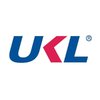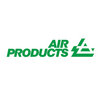i
Kohli Industries
Filter interviews by
Kohli Industries Interview Questions and Answers
Be the first one to contribute and help others!
Interview questions from similar companies

I applied via Company Website and was interviewed in Jul 2024. There was 1 interview round.
(5 Questions)
- Q1. What is the value of CPK
- Ans.
CPK is a statistical measure used to assess the capability of a process to produce output within specification limits.
CPK is calculated using the formula: CPK = (USL - LSL) / (6 * standard deviation)
A CPK value greater than 1 indicates that the process is capable of producing within specification limits
A CPK value less than 1 indicates that the process may not be capable of consistently producing within specification l
- Q2. What is Ra in roughnes tester
- Ans.
Ra in roughness tester is the average roughness value of the surface profile within a specified sampling length.
Ra is a parameter used to quantify the roughness of a surface.
It is calculated as the arithmetic average of the absolute values of the profile heights over the evaluation length.
Ra provides a measure of the deviation of the surface profile from the mean line.
It is commonly used in industries such as manufactu...
- Q3. What is 7Qc tool and how you used it in daily routine?
- Ans.
7QC tools are a set of quality control tools used for process improvement and problem-solving in quality management.
Check sheets: Used to collect and analyze data in a systematic way.
Histograms: Used to show frequency distribution of a process.
Pareto charts: Helps identify the most significant factors contributing to a problem.
Cause-and-effect diagrams: Used to identify and analyze potential causes of a problem.
Scatter...
- Q4. 8D methodology and projects on it
- Ans.
The 8D methodology is a problem-solving approach used in quality management to identify, correct, and prevent recurring problems.
The 8D methodology consists of 8 steps: D0 - Plan, D1 - Team Formation, D2 - Problem Description, D3 - Interim Containment Action, D4 - Root Cause Analysis, D5 - Permanent Corrective Action, D6 - Prevent Recurrence, D7 - Recognize Team Effort, D8 - Closure and Team Disbandment
It is commonly u...
- Q5. Previous working related

Cable selection
Panel components mounting
Panel layout?
(2 Questions)
- Q1. Latest working version of Eplan
- Q2. Eplan command
Interview Preparation Tips

Applications Engineer Interview Questions & Answers
Crane Process Flow Technologies Indiaposted on 5 May 2024
I applied via Company Website and was interviewed in Apr 2024. There was 1 interview round.
(4 Questions)
- Q1. Mechanical aptitude
- Q2. Explain on flushing & cavitation
- Ans.
Flushing is the process of cleaning out a system by forcing fluid through it, while cavitation is the formation of vapor bubbles in a liquid due to rapid changes in pressure.
Flushing involves using a fluid to remove contaminants or debris from a system, such as a hydraulic system or a pipeline.
Cavitation occurs when the pressure in a liquid drops below its vapor pressure, causing bubbles to form and collapse, leading t...
- Q3. Explain on different materials & their grades
- Ans.
Materials come in different grades based on their composition, properties, and intended use.
Materials can be classified into metals, polymers, ceramics, and composites.
Each material type has different grades based on factors like strength, durability, conductivity, and corrosion resistance.
Examples include steel grades like 304, 316, and 430, polymer grades like HDPE and PVC, and ceramic grades like alumina and zirconi
- Q4. Stress vs strain on mild steel & different materials
- Ans.
Stress is the force applied to a material, while strain is the resulting deformation. Mild steel has a linear stress-strain curve.
Stress is the force applied to a material per unit area, measured in N/m^2 or Pascals.
Strain is the resulting deformation of the material, measured as a ratio of the change in length to the original length.
Mild steel typically has a linear stress-strain curve until it reaches its yield point...
Interview Preparation Tips

Administration Manager Interview Questions & Answers
Prodair Air Productsposted on 13 Jan 2025
I applied via Recruitment Consulltant and was interviewed in Dec 2024. There was 1 interview round.
(1 Question)
- Q1. About experience

(3 Questions)
- Q1. Introduction of yourself
- Q2. Daily work routine & Responsibility
- Q3. Technical questions regarding Job profile
Interview Preparation Tips

I applied via Walk-in and was interviewed in Mar 2024. There was 1 interview round.
(5 Questions)
- Q1. Instrumental related questions
- Q2. Vernier caliper, micro meter, screw gauge etc.
- Q3. Subject related
- Q4. Production quality
- Q5. Engineering materials related
Interview Preparation Tips

Associate Trainee Interview Questions & Answers
Kyb Motorcycle Suspensionposted on 19 Oct 2024
I applied via campus placement at Sri Vasavi Engineering College, Tadepalligudem
(2 Questions)
- Q1. Are you willing to work hard
- Q2. Are a work in rotational shifts
Interview Preparation Tips

Service Engineer Interview Questions & Answers
Garuda Powerposted on 11 Sep 2024
(2 Questions)
- Q1. What is current
- Ans.
Current is the flow of electric charge in a circuit.
Current is measured in Amperes (A).
It is the rate of flow of electric charge through a conductor.
Current can be either direct current (DC) or alternating current (AC).
- Q2. What is voltage
- Ans.
Voltage is the difference in electric potential between two points in a circuit, measured in volts.
Voltage is the force that pushes electric current through a circuit
It is measured in volts (V)
Voltage is the potential difference between two points in a circuit
Higher voltage means more potential energy available to move electrons
Examples: 120V in household outlets, 12V in car batteries

Production Graduate Engineer Trainee Interview Questions & Answers
PMT Machinesposted on 5 Feb 2024
I applied via Campus Placement and was interviewed in Jan 2024. There was 1 interview round.
(6 Questions)
- Q1. Gear Module Cnc operation, turning grinding kurling Speak on subject learned in Engineering Material knowledge
- Q2. Elaborate what you studied in 4yrs engineering
- Q3. About company products
- Q4. Material properties
- Ans.
Material properties refer to the physical and chemical characteristics of a substance.
Material properties include mechanical properties (e.g. strength, hardness), thermal properties (e.g. conductivity, expansion), electrical properties (e.g. resistivity, conductivity), and chemical properties (e.g. reactivity, corrosion resistance).
Mechanical properties describe how a material responds to applied forces, such as tensil...
- Q5. Strength of materials
- Ans.
Strength of materials is a branch of engineering that deals with the behavior of solid objects subjected to stresses and strains.
Strength of materials is concerned with the study of how materials deform and fail under various loads.
It involves analyzing the mechanical properties of materials such as stress, strain, elasticity, and plasticity.
Understanding the strength of materials is crucial in designing and constructi...
- Q6. Strength of materials knowledge
- Ans.
I have a strong knowledge of strength of materials.
I have studied the principles and theories of strength of materials during my engineering education.
I am familiar with concepts such as stress, strain, elasticity, and deformation.
I have practical experience in applying strength of materials knowledge in designing and analyzing structures.
I can perform calculations to determine the strength and stability of materials u...

Maintenance Technician Interview Questions & Answers
Escon Elevatorsposted on 26 Dec 2023
I applied via Company Website and was interviewed in Nov 2023. There were 2 interview rounds.

(3 Questions)
- Q1. Technical round ( technical questions)
- Q2. World maintenance incharge had (again, technical questions)
- Q3. HR round for seller, discussion and IQ
Interview Preparation Tips
Kohli Industries Interview FAQs
Tell us how to improve this page.
Interview Questions for Popular Designations
Interview Questions from Similar Companies
Kohli Industries Reviews and Ratings
based on 10 reviews
Rating in categories
|
Design Engineer
6
salaries
| ₹3.8 L/yr - ₹4.2 L/yr |
|
Automation Engineer
6
salaries
| ₹2.7 L/yr - ₹6.3 L/yr |
|
Project Engineer
4
salaries
| ₹4.3 L/yr - ₹4.3 L/yr |
|
Service Engineer
4
salaries
| ₹4.1 L/yr - ₹16 L/yr |
|
Quality Engineer
4
salaries
| ₹3.6 L/yr - ₹5.8 L/yr |

Tata Group

Reliance Industries

Adani Group

Mahindra & Mahindra
- Home >
- Interviews >
- Kohli Industries Interview Questions










